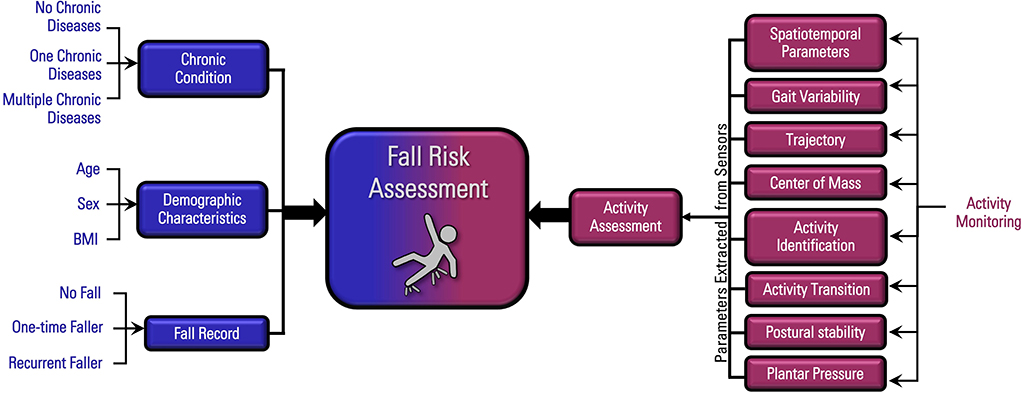What Does Dementia Fall Risk Mean?
What Does Dementia Fall Risk Mean?
Blog Article
Dementia Fall Risk Fundamentals Explained
Table of ContentsWhat Does Dementia Fall Risk Do?The smart Trick of Dementia Fall Risk That Nobody is DiscussingThe Single Strategy To Use For Dementia Fall RiskThings about Dementia Fall Risk
A fall threat evaluation checks to see exactly how most likely it is that you will fall. It is mainly done for older grownups. The evaluation normally consists of: This consists of a series of concerns about your overall wellness and if you have actually had previous drops or problems with equilibrium, standing, and/or walking. These devices evaluate your strength, equilibrium, and gait (the method you stroll).Interventions are recommendations that might lower your risk of dropping. STEADI consists of three actions: you for your danger of falling for your threat elements that can be improved to try to avoid drops (for example, equilibrium troubles, impaired vision) to minimize your risk of falling by utilizing reliable techniques (for example, offering education and learning and sources), you may be asked several concerns including: Have you fallen in the previous year? Are you worried regarding dropping?
If it takes you 12 seconds or more, it might suggest you are at higher risk for an autumn. This examination checks toughness and equilibrium.
Relocate one foot halfway onward, so the instep is touching the huge toe of your other foot. Move one foot totally in front of the other, so the toes are touching the heel of your various other foot.
The 9-Minute Rule for Dementia Fall Risk
Most drops occur as an outcome of several adding elements; consequently, managing the risk of dropping starts with determining the aspects that add to fall risk - Dementia Fall Risk. Some of one of the most relevant danger aspects consist of: Background of prior fallsChronic medical conditionsAcute illnessImpaired stride and balance, lower extremity weaknessCognitive impairmentChanges in visionCertain risky drugs and polypharmacyEnvironmental aspects can also boost the danger for drops, consisting of: Insufficient lightingUneven or harmed flooringWet or unsafe floorsMissing or damaged hand rails and get barsDamaged or incorrectly equipped tools, such as beds, wheelchairs, or walkersImproper usage of assistive devicesInadequate guidance of individuals living in the NF, consisting of those that exhibit aggressive behaviorsA effective loss risk monitoring program calls for a detailed clinical assessment, with input from all members of the interdisciplinary group

The treatment strategy ought to additionally include treatments that are system-based, such as those that promote a safe atmosphere (suitable lighting, hand rails, order bars, etc). The effectiveness of the treatments should be assessed periodically, and the care plan changed as necessary to mirror modifications in the fall danger evaluation. Implementing a fall risk administration system making use of evidence-based ideal technique can minimize the occurrence of drops in the NF, while limiting the potential for fall-related injuries.
Some Known Facts About Dementia Fall Risk.
The AGS/BGS guideline recommends evaluating all grownups matured 65 years and older for loss risk annually. This screening contains asking people whether they have actually fallen 2 or even more times in the previous year or looked for medical interest for an autumn, or, if they have not dropped, whether they really feel unsteady when walking.
People who have dropped when without injury ought to have their balance and gait examined; those with gait or balance irregularities should receive additional evaluation. A background of 1 loss without injury and without gait or equilibrium problems does not warrant more Go Here analysis beyond continued yearly loss risk screening. Dementia Fall Risk. A loss threat analysis is required as component of the Welcome to Medicare examination

Getting My Dementia Fall Risk To Work
Documenting a drops background is one of the quality indicators for loss avoidance and administration. copyright medications in specific are independent predictors of drops.
Postural hypotension can frequently be relieved by lowering the dose of blood pressurelowering drugs and/or quiting drugs that have orthostatic hypotension as an adverse effects. Usage of above-the-knee support hose pipe and sleeping with the head of the bed elevated may likewise reduce postural reductions in high blood pressure. Go Here The recommended components of a fall-focused checkup are displayed in Box 1.

A Pull time higher than or equal to 12 secs suggests high autumn risk. Being unable to stand up from a chair of knee height without making use of one's arms shows boosted fall risk.
Report this page